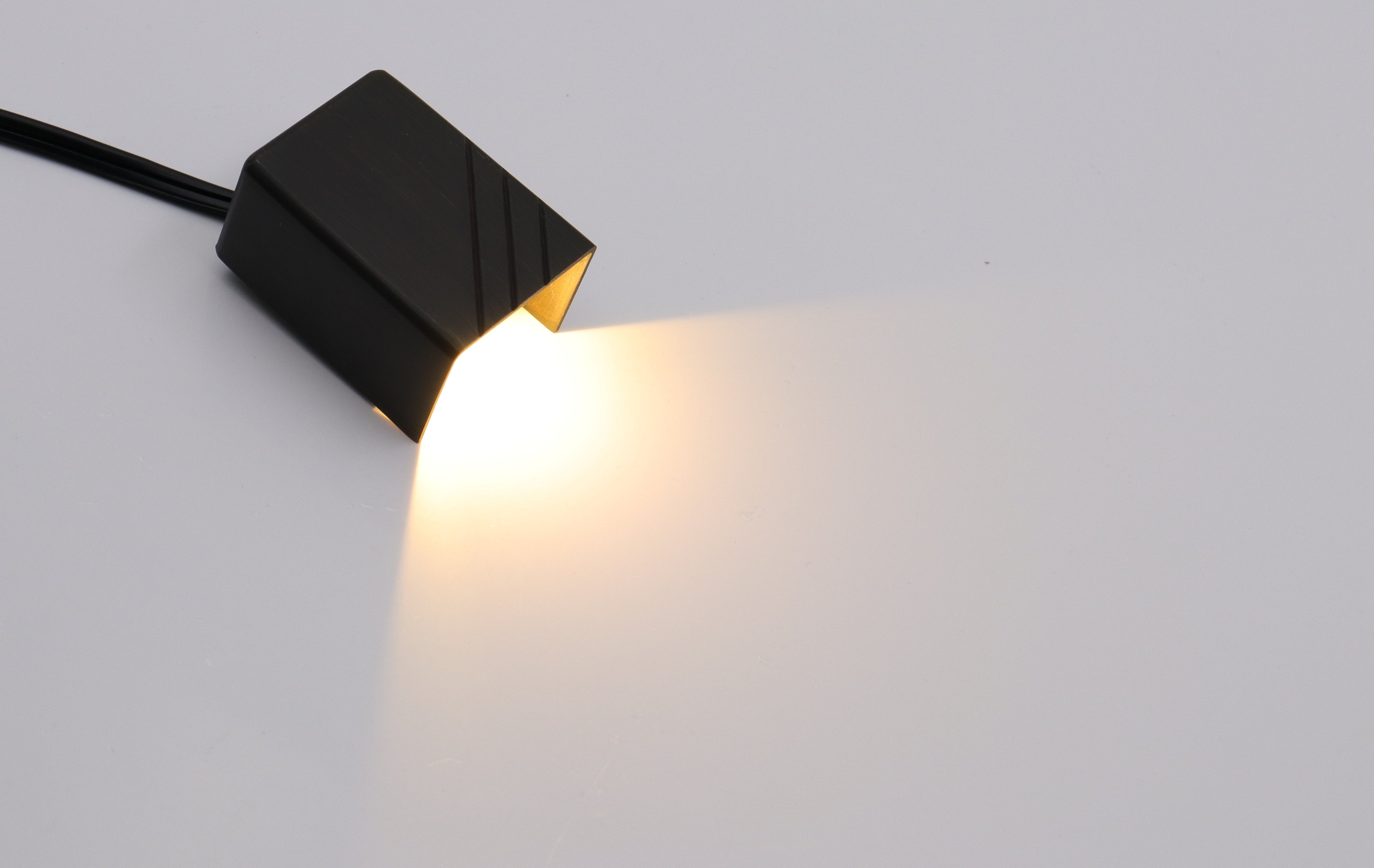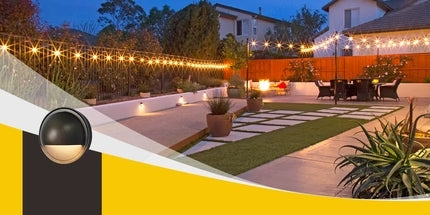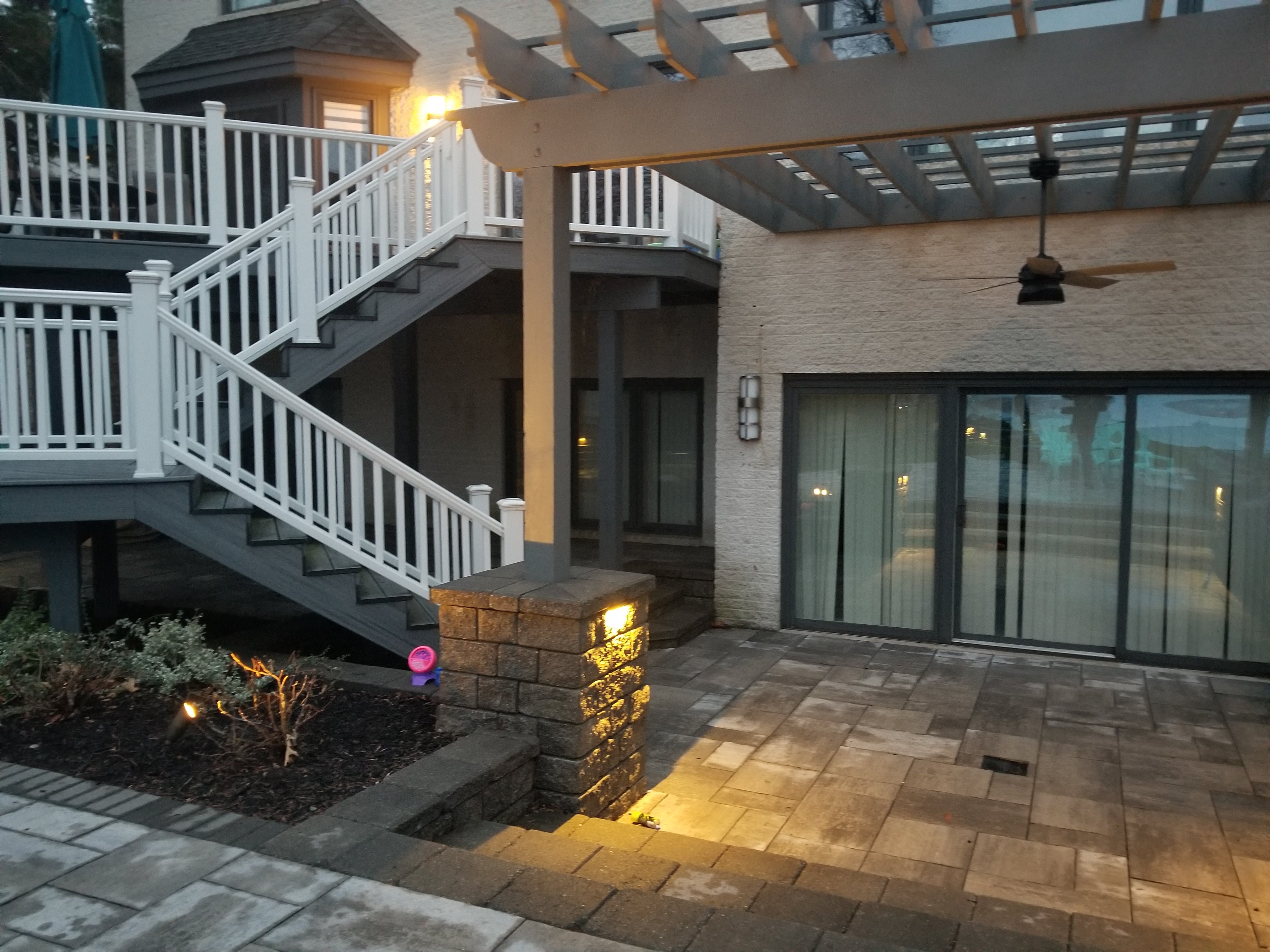Selecting deck lighting for homes by the sea isn't just about style; it's about finding lights that can handle salty sea air and fit the coastal vibe.
In this guide, we'll look at the pros and cons of solar versus LED lights, discuss the most durable materials, and help you pick the right color and brightness for your lights. We’ll also cover design tips to match your coastal theme, explain why a 2700k warm white bulb might be your best choice, offer advice on preventing rust, and suggest the best spots to place your lights for that perfect seaside ambiance.

Which Are Better for Coastal Homes: Solar or LED Outdoor Lights?
| Feature | Solar Lights | LED Lights |
|---|---|---|
| Power Source | Sunlight | Electricity |
| Energy Efficiency | High (uses renewable energy) | Very High (low power consumption) |
| Cost Over Time | Lower (no electricity costs) | Higher (due to electricity bills) |
| Installation Complexity | Generally simple (no wiring) | Can be complex (requires wiring) |
| Maintenance | Minimal (mainly cleaning solar panels) | Low (long-lasting bulbs) |
| Durability in Coastal Air | Varies (some models may corrode) | Generally high (if designed for outdoor use) |
| Lighting Intensity | Generally lower than LED | High and customizable |
| Lifespan | Shorter (batteries may need frequent changes) | Longer (LEDs last many years) |
| Pros |
|
|
| Cons |
|
|
Choosing deck lights for a home by the ocean means picking what works best for you. If you want something easy that saves money in the long run, solar might be the way to go. But if you need strong lights that last and don't mind spending more upfront, then LED is a good choice. Think about what’s important for your deck and you'll find the right fit.
What Is the Best Material for Deck Lighting for Coastal Homes?
| Material | Pros | Cons |
|---|---|---|
| Marine-Grade Stainless Steel | Extremely durable and resistant to corrosion. | Can be pricier than other options. |
| Copper | Develops a patina that many find appealing; strong resistance to corrosion. | Initial cost is high; requires some maintenance to keep its color. |
| Brass | Excellent durability; develops a warm, antique look over time. | Expensive; may tarnish if not periodically cleaned. |
| Aluminum | Lightweight and often treated for extra resistance; more affordable. | Less robust in face of extreme conditions unless specifically treated. |
| Heavy-Duty Plastics or Composites | Completely rustproof and generally low maintenance. | May lack the desired aesthetic appeal of metal fixtures. |
Marine-grade stainless steel, copper, aluminum, and even heavy-duty plastics each have their own set of benefits, balancing aesthetics with resilience. However, brass stands out as the top pick. It's strong enough for salty sea breezes and still looks good year after year, even as it changes color a bit. If you want deck lights that last and give your home a classic touch, brass is the way to go.
What is the Best Color for Deck Lights in Coastal Homes?
Deck lights can make or break the look and feel of your coastal home. You'll want something that looks good, fits with the beach vibe, and is practical too. Here's a chart to help you decide what color of deck lights will work best for your seaside spot:
| Color Choice | Color Temperature | Description | When It Works Well |
|---|---|---|---|
| Natural Tones | 2700K - 3000K | Warm, yellowish hue | To blend in with nature and create a warm atmosphere. |
| Soft White | 3000K - 3500K | Soft, warm white light | For general use and a welcoming glow. |
| Cool White | 4000K - 4500K | Bright and more neutral | Where tasks happen, like cooking or reading. |
| Blue/Green Tints | Varied | Hues mimicking sea and foliage | As accents to mirror the ocean and greenery. |
- Warm yellowish lights are great for a chill, beachy vibe and won't bother the local critters.
- Soft white is good for seeing clearly without feeling like you're under a spotlight—it's nice for hanging out with friends or just kicking back.
- Bright, neutral white is best where you need to pay attention to what you're doing, like grilling or reading. But it might not be so great if you want to keep things mellow.
- Blue or green lights can look cool since they match the ocean and plants, but they're really just for special spots so they don't throw off the natural night feel or mess with animals’ night-time routines.
Basically, choose a light that makes your space look good, lets you do what you need to do, and fits in with the beach scene.
What Wattage Is Best for Coastal Homes Lighting?
When lighting up your seaside home, picking the right light strength is key. You want to be able to see without losing that cozy beach feeling or shining too bright against the backdrop of the ocean.
Here’s a simple guide on wattages for different outdoor spaces in coastal homes:
| Area | Recommended Wattage | Lumens Equivalent | Purpose |
|---|---|---|---|
| Deck/Patio | 40-60 watts | 450-800 lumens | Enough light for hanging out and dining. |
| Walkways | 12-15 watts | 100-200 lumens | Soft light to see where you're going. |
| Perimeter | 80-100 watts | 1600+ lumens | Bright light for safety and to scare off critters. |
LED lights are a smart pick for coastal homes because they last longer, even when the salty air tries its best to wear them down. Plus, they use less electricity, so they're kinder to your wallet and the planet. Tailor the brightness to the spot—cozy for the deck, gentle on paths, and bright for security. Stick with LEDs, and you'll have lights that last and don’t cost the earth to run.

6 Deck Lighting Designs to Complement Coastal Decor
Coastal homes often draw inspiration from their natural surroundings, embracing airy spaces, light colors, and organic textures. The right lighting not only illuminates these elements but also enhances them. Here's a look at various coastal decor styles and the deck lighting designs that best complement each one:
1. Crescent Bay Illuminator
This deck light, shaped like a half-ball, has a simple, clean look that reminds you of the sun dipping down over a peaceful sea. Its half-moon aperture casts a gentle downward glow, mimicking the soft illumination of moonlight on a tranquil beach. The flat-backed construction allows for seamless integration into outdoor spaces, much like a lighthouse hugging the shoreline.
| Decor Style | Lighting Design | Features |
|---|---|---|
| Coastal Minimalism | Crescent Downlighting |
|
2. Nautical Charm
For homes that channel a classic nautical theme with navy blues, whites, and reds, and perhaps the use of maritime accessories like ropes, anchors, and stripes, traditional lantern-style lights are a perfect match. These can be wall-mounted sconces that resemble old ship lanterns or hanging pendants with a vintage look.
| Decor Style | Lighting Design | Features |
|---|---|---|
| Nautical | Lantern-Style | Metal frames, glass panes, vintage |
3. Modern Maritime
If your coastal home leans towards a modern aesthetic with clean lines and a minimalist approach, consider sleek, geometric lighting fixtures. Stainless steel or brushed nickel finishes work well here, offering corrosion resistance alongside a contemporary feel.
| Decor Style | Lighting Design | Features |
|---|---|---|
| Modern | Geometric Fixtures | Clean lines, metallic finishes |
4. Beachside Bohemian
Bohemian coastal decor is all about relaxed living and natural ease, often featuring rattan furniture, textured fabrics, and eclectic patterns. Opt for boho-chic lighting like woven pendant lights that cast beautiful shadows and add texture.
| Decor Style | Lighting Design | Features |
|---|---|---|
| Bohemian | Woven Pendants | Natural materials, intricate weave patterns |
5. Coastal Cottage
The coastal cottage look epitomizes coziness, with soft pastels, distressed wood, and an overall inviting ambiance. Choose lighting that feels artisanal—perhaps hand-crafted sconces or pendants made with frosted glass and subtle metal detailing.
| Decor Style | Lighting Design | Features |
|---|---|---|
| Cottage | Artisanal Fixtures | Handmade look, frosted glass |
6. Tropical Retreat
A tropical coastal home might showcase lush greenery, bold prints, and warm wood tones. Bamboo or teak lighting fixtures can underscore this vibe, especially when designed with open frameworks to create light patterns reminiscent of sunlight filtering through trees.
| Decor Style | Lighting Design | Features |
|---|---|---|
| Tropical | Bamboo/Teak Fixtures | Wood construction, open light patterns |
Whether it’s a touch of nautical nostalgia, modern minimalism, eclectic artistry, quaint cottage warmth, or tropical ambiance, the right lighting design will enhance and elevate your coastal living experience.
How to Keep Deck Lights from Rusting
Deck lights that are situated along the coast have to fight off moisture and salt, which can make it rust. Here are helpful steps to make sure your lights stay shiny and new:
- First, select lights made of non-rusting materials such as brass, marine-grade stainless steel, copper, or plastic with weatherproof.
- Clean your lights often so that salt and moisture will not build up and cause them to rust.
- Apply clear varnish or a water sealant on the metals to prevent water.
- The installation of lighting should also be tight to prevent water from seeping into the set.
- Use hardware that is manufactured from rust-resistant material, such as screws and all other related fittings.
- Look for signs of rust once in a while and remove them right away, if any.
- Use bulbs that are capable of withstanding outdoor conditions at higher humidity levels.
- Ensure that there is good airflow around your lights, helping to keep them dry.
What Are the Best Places to Install Deck Lights for Coastal Homes?
Choosing the best locations for deck lighting in a coastal home is crucial for both functionality and ambiance. Here are the best places to put deck lights on your coastal home:
| Location | Purpose | Additional Information |
|---|---|---|
| Deck Stairs | Safety | Install lights on each step or along the side railing for clear visibility. |
| Railings | Guidance | Mounting lights under railings provides a guide and adds a soft glow. |
| Floor Perimeters | Boundary Definition | Lights around the deck's edge define space, making it safer to navigate. |
| Seating Areas | Ambiance & Usability | Use softer lights to create a relaxing atmosphere where people can gather. |
| Outdoor Kitchen/Bar | Task Lighting | Brighter, focused lights are practical here for cooking and prep work. |
| Walkways | Directional Assistance | Pathway lights ensure safe passage from one area of the outdoor space to another. |
| Entryways | Welcoming Entrance | Illuminate entrance areas to invite guests and offer safe access to your home. |
| Landscape Features | Highlighting & Aesthetic Enhancement | Use accent lights to spotlight plants, sculptures, or water features. |
For these spots, select fixtures that are resilient and not easily affected by weather conditions. With strategic placement and appropriate lighting choices, you can improve the safety, functionality, and serene beauty of your coastal living space.
Light Up Your Coastal Home: Choose the Right Deck Lights
The correct placement of deck lights around your ocean-facing house can make quite a difference. They are intelligent options because they save energy; for example, LED or solar-powered lighting fixtures are cost-effective and last a long time. Choose materials that resist rust from salty sea air to avoid frequent replacements. Soft light is best for welcoming feelings, and lights should be cleaned regularly to prevent rust. Stick to these tips, and you'll have a well-lit deck that is safe and inviting, truly rounding off house and home by the water.







Leave a comment
All comments are moderated before being published.
This site is protected by hCaptcha and the hCaptcha Privacy Policy and Terms of Service apply.